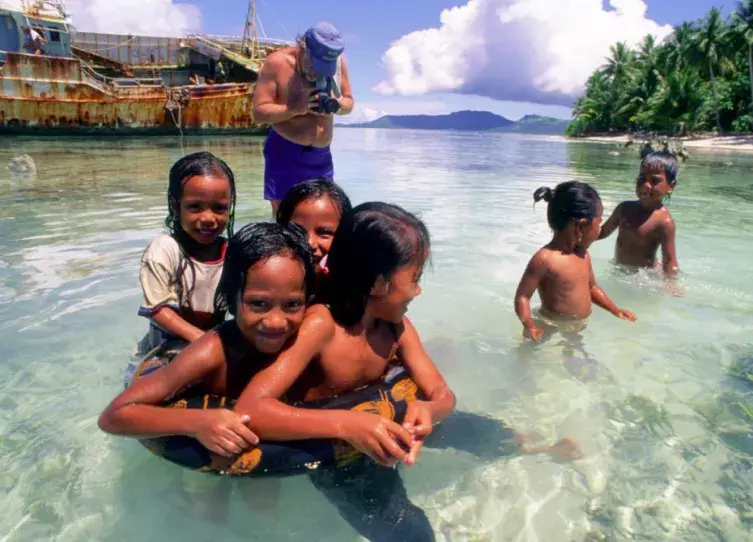Error message

When Continental Air Micronesia inaugurated regular jet air service to the Trust Territory of the Pacific Islands in the late 1960s, it created new links between the Islands and both the US mainland and East Asia. The new flight service opened commercial possibilities for islands then struggling with an uncertain political and economic future. Tourism was at best a distant hope as an engine for economic growth. Chuuk, Marshall Islands, Northern Marianas, Palau, Pohnpei, and Yap all began promoting tourism at the same time, with roughly comparable infrastructure and a total of 238 hotel rooms among them. In 1970, Continental built three new 50-room hotels in Chuuk, Palau, and the Northern Marianas and began vigorously promoting the islands as a Pacific paradise getaway destination. What happened over subsequent decades in these three island groups is the subject of this study. Policymakers elsewhere in the Pacific may reasonably look to tourism as a catalyst for national economic development, but what these case studies suggest is that they should not assume all Pacific states can successfully summon a tourist industry at will. Moreover, since tourism is a highly mobile and competitive economic activity, the gains made in nurturing an emerging tourism industry can fluctuate almost overnight due to global forces well beyond the control of island governments or investors.
About the author
Francis X. Hezel is a Jesuit priest who has worked in Micronesia for nearly fifty years. He spent part of this time as a teacher, principal and director at Xavier High School, Chuuk. He also served as regional superior of the Jesuits in Micronesia. For 39 years he served as the director of Micronesian Seminar, a Jesuit-sponsored research-pastoral institute engaged in extensive community education work in the Pacific. In this capacity he has organized several conferences on current issues and has written and spoken widely about social change and its impact on island societies. He has also published nearly a hundred articles and eleven books on Micronesian history and culture, including The First Taint of Civilization and Strangers in Their Own Land. He produced over 70 video documentaries for local broadcast, including a seven-hour series on the history of Micronesia, and introduced a popular website that offers Micronesians everywhere the opportunity to access MicSem products and to discuss contemporary issues with one another.
When Continental Air Micronesia inaugurated regular jet air service to the Trust Territory of the Pacific Islands in the late 1960s, it created new links between the Islands and both the US mainland and East Asia. The new flight service opened commercial possibilities for islands then struggling with an uncertain political and economic future. Tourism was at best a distant hope as an engine for economic growth. Chuuk, Marshall Islands, Northern Marianas, Palau, Pohnpei, and Yap all began promoting tourism at the same time, with roughly comparable infrastructure and a total of 238 hotel rooms among them. In 1970, Continental built three new 50-room hotels in Chuuk, Palau, and the Northern Marianas and began vigorously promoting the islands as a Pacific paradise getaway destination. What happened over subsequent decades in these three island groups is the subject of this study. Policymakers elsewhere in the Pacific may reasonably look to tourism as a catalyst for national economic development, but what these case studies suggest is that they should not assume all Pacific states can successfully summon a tourist industry at will. Moreover, since tourism is a highly mobile and competitive economic activity, the gains made in nurturing an emerging tourism industry can fluctuate almost overnight due to global forces well beyond the control of island governments or investors.
About the author
Francis X. Hezel is a Jesuit priest who has worked in Micronesia for nearly fifty years. He spent part of this time as a teacher, principal and director at Xavier High School, Chuuk. He also served as regional superior of the Jesuits in Micronesia. For 39 years he served as the director of Micronesian Seminar, a Jesuit-sponsored research-pastoral institute engaged in extensive community education work in the Pacific. In this capacity he has organized several conferences on current issues and has written and spoken widely about social change and its impact on island societies. He has also published nearly a hundred articles and eleven books on Micronesian history and culture, including The First Taint of Civilization and Strangers in Their Own Land. He produced over 70 video documentaries for local broadcast, including a seven-hour series on the history of Micronesia, and introduced a popular website that offers Micronesians everywhere the opportunity to access MicSem products and to discuss contemporary issues with one another.




